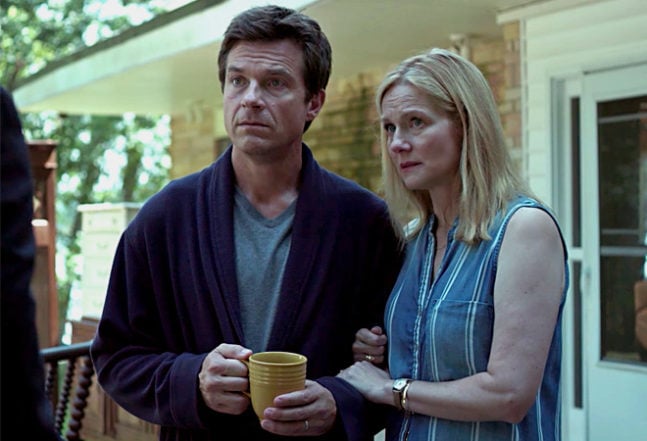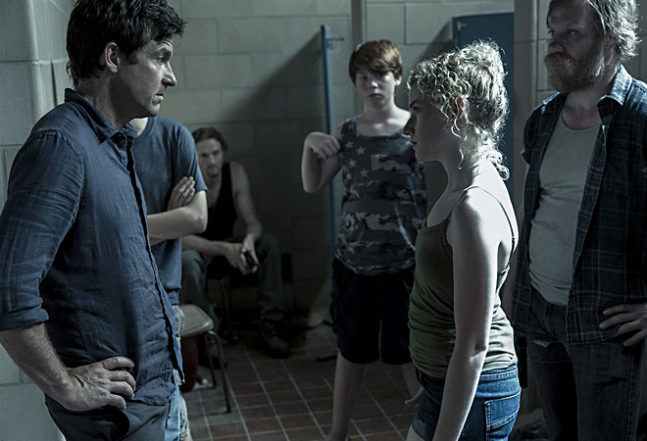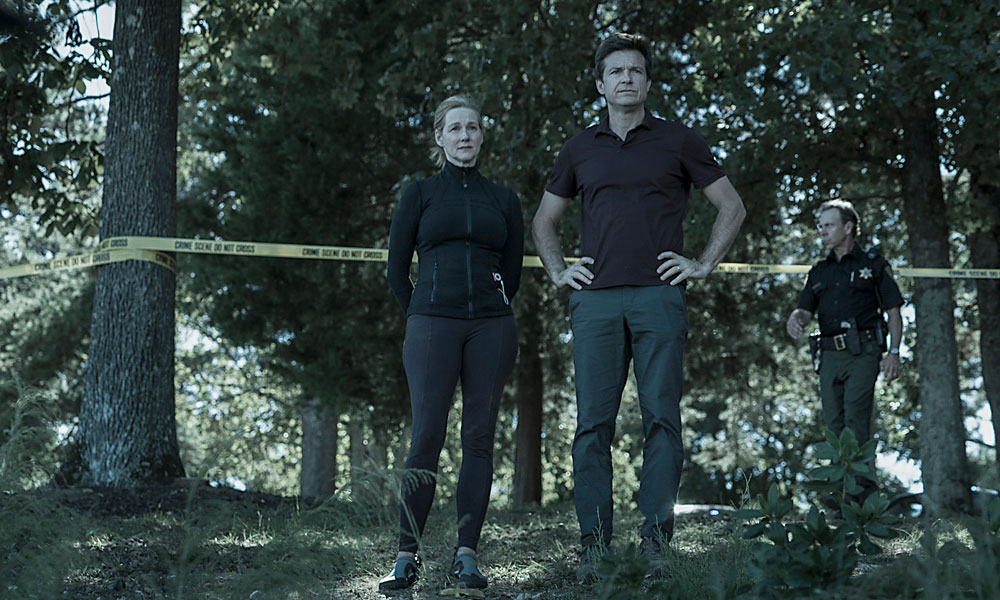Netflix spent a whopping $6 billion on content this year, according to its CEO Reed Hastings, and it’s starting to show. They’ve given us new original shows like House of Cards, Orange is the New Black, Narcos, 13 Reasons Why, Chef’s Table, Stranger Things, and a ton of others—and they don’t intend on slowing down anytime soon.
One of their newest ventures, Ozark, is another standout Original for the streaming giant that caught our attention—but maybe not yours. For whatever reason, we haven’t been hearing too much about Ozark on social media or in the press. What we have heard is pretty black and white: Either you love it or you hate it.

It’s Like Breaking Bad, In a Very Good Way
One of the things we noticed right off the bat was how similar to Breaking Bad Ozarks is, but not in a “more of the same” kind of way. Bryan Cranston really brought the allure of the antihero crime drama to the American spotlight with his role as Walter White, and Jason Bateman excellently pulls this off as Marty Byrde in Ozark.
Like White, Byrde is a father who gets mixed up in nefarious dealings for the betterment of his family, and like White, Byrde has to figure out how to sort out the mess. As with Breaking Bad, Byrde’s sordid life eventually becomes a family affair that puts everyone at risk.
And, of course, when we first started watching Ozark, we couldn’t help but remember Bateman’s role as Michael Bluth in Arrested Development, just like we remembered Cranston as Hal in Malcolm in the Middle the first time we saw Breaking Bad.
Where those similarities end—aside from the whole crystal meth thing—is that we get to see Walter White’s journey from start to unfortunate finish. In Ozark we’re thrown right into the thick of the action. We don’t have the background context, which really gives things and interesting, “What the hell is happening right now?” feel, right from the get go.

The Characters are Intelligent
Ozark’s strongest qualities are how well developed the plot is, along with the intelligence of the characters. To viewers, it means that there’s never any ridiculous plot thinness, and no one is ever obsessing over the wrong questions or missing obvious connections.
The show’s plot stands tall enough on its own, which means things are straightforward. It never drags and leaves viewers with the, “Oh, come on” feelings typical in a lot of the antihero crime dramas we’ve gotten over the last few years. We also really appreciate how incredibly interesting and realistic these characters become, over time. We learn to empathize with the Byrde’s, and legitimately fear for them.
We’d be remiss not to acknowledge that the show’s “eh” premise, “Man with promising-but-excruciatingly-boring career starts dealing with the wrong people while his marriage begins to fizzle out” isn’t all that original. The difference is that it works because of how rich and realistic these characters become. Things get outrageous at times, but these people never stop being genuine.

It’s Unapologetically Un-Hollywood
Ozark isn’t meant to be a polished Hollywood adventure like other antihero shows. It doesn’t have the slick sheen of Mad Men or Dexter, both shows that can come off a little too engineered at times. It never breaks with its authentic roots, which means it gets chaotic, and even brutal at times. You’ll see what we mean after the first episode.
It’s also completely devoid of the typical secrecy you find in Hollywood-style dramas. For instance, Marty’s wife, Wendy (played excellently by Laura Linney), almost immediately tells their kids what’s happening, why they had to leave Chicago, and who their father is in trouble with. It’s a quick scene of refreshing honesty, coming out of an industry that seems to be violently revolted by characters who don’t keep needless secrets.
Where other shows would get stale and redundant, Ozark plunges headfirst into the dark abyss and doesn’t stop.

It’s Well-Paced, Beautifully Shot, and Has an Amazing Soundtrack
Ozark received quite a bit of criticism for slowing down after the first episode, but that pacing pulled us in even deeper. We don’t think the show would have had as much staying power if it was just a bullet train straight through, and we think that’s exactly what Bateman—also the show’s executive producer—had in mind when they began storyboarding everything.
It’s also incredibly well-shot. Astute eyes notice the thematic blue-gray color palette and sharp lighting and shadowing throughout. If you thought that was all by accident, think again. The show’s lead cinematographer, Pepe Avila del Pino sat down with No Film School and gave up the dirt on how and why they shot the film the way they did. Every single aspect of the filming, from the use of lighting, to the colors (Every scene was shot at 4,400 Kelvin temperature—they were that specific), to the tight-cropped style and beyond, was used to create the authentic, dark, and gritty feel that defines the show.
And love the show or hate it, no one can deny that Ozark’s soundtrack is unreal, not only in its quality and depth (You’ll hear everything from Kanye, to Radiohead, and The Crickets), but also in the way it helps convey critical emotion and furthers the show’s masterful storytelling. In a world saturated by fast-paced action and lack of subtlety, the Ozark team isn’t afraid of awkward silence, and knows how to make music a critical part of the narrative. It’s exceptional.
The whole show is.




